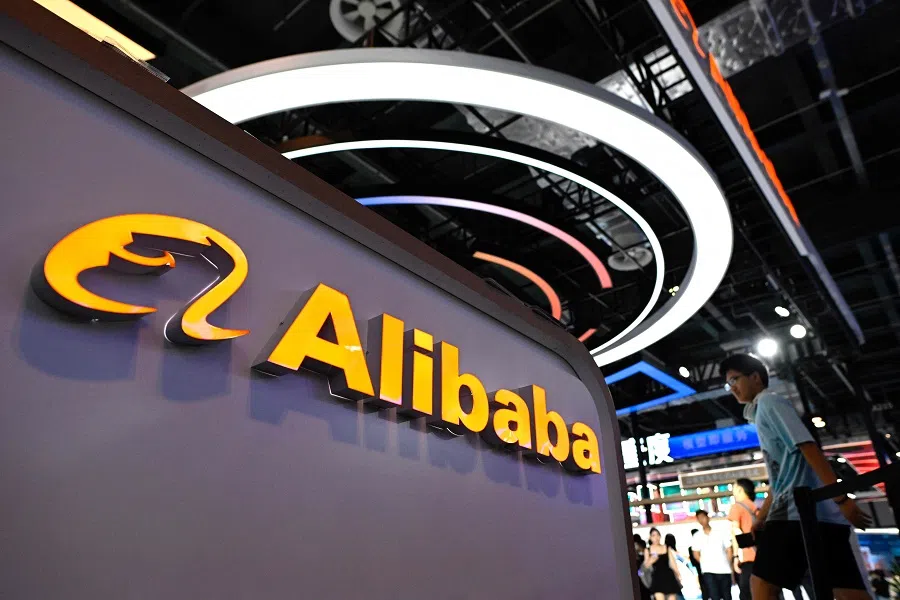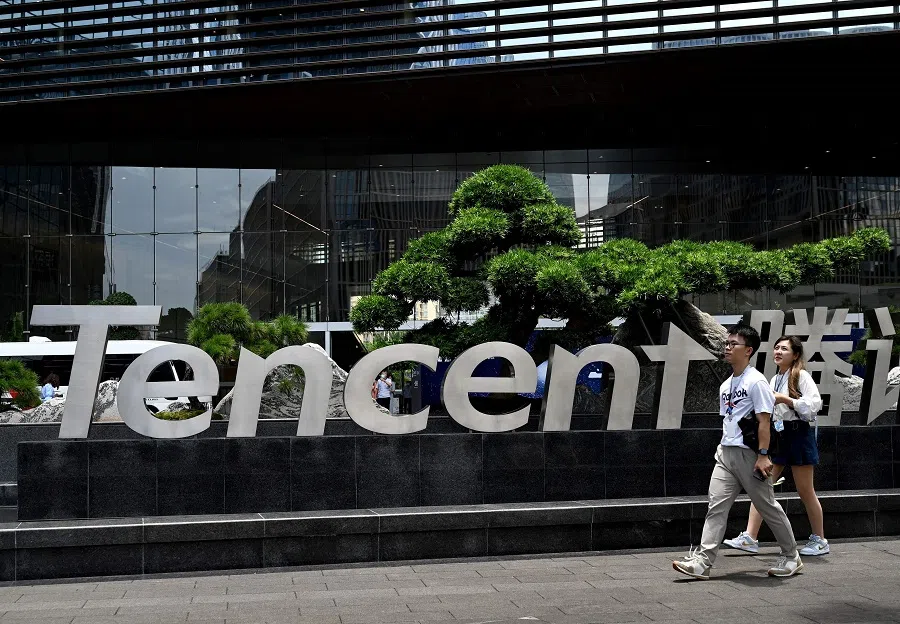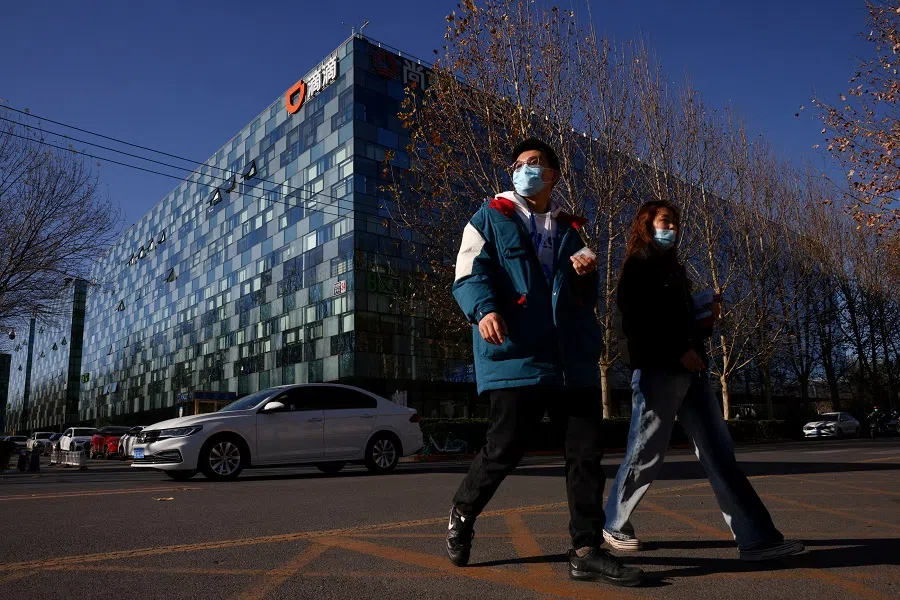Big tech is changing in China, and so are its hiring plans
China's tech sector has been making mass layoffs, freezing hiring and cutting pay since 2022, and there is little sign of a bounce-back. Cost reductions, efficiency enhancement or talent structure optimisation are often the words these companies use. But what is really weighing on the job market are sluggish business growth, intensified market competition and the unprecedented challenges of the business landscape amid new technology.

(By Caixin journalists Bao Yunhong, Guan Cong, Sun Yanran, Qu Yunxu and Bonnie Cao)
The fall hiring season for big Chinese tech companies is a little quieter this year, reflecting slowing growth, corporate restructuring and changing needs.
China's tech sector has been making mass layoffs, freezing hiring and cutting pay since 2022 as companies grappled with a slowing domestic economy and the aftermath of an industrywide regulatory clampdown. There is little sign of a bounce-back.
Major tech companies' campus recruiting continued nonetheless, although hiring needs this year are far smaller than in 2022 and demand is focused on high-end positions, according to several headhunters. JD.com Inc. offered 8,000 positions for fresh college grads, the most among peers. Alibaba Group Holding Ltd. plans to hire 15,000, including more than 3,000 for campus recruiting. Meituan has more than 6,000 openings in junior positions.
"Overall, these internet companies are still in a downsizing mode," said Zheng Nan, founder of Zhiyi Consulting, a headhunting company.
The hiring bar is also higher as companies focus more on mid- to high-level positions, Zheng said. "Major tech companies have clear goals for their talent strategies," Zheng said. "Some companies would hire a higher-level person to replace a departing junior staffer."

Cost reductions, efficiency enhancement or talent structure optimisation are often the words these companies use. But what is really weighing on the job market are sluggish business growth, intensified market competition and the unprecedented challenges of the business landscape amid new technology.
The leading tech companies soon started to embrace a new era of downsizing and cost cutting amid a government crackdown and a lingering pandemic.
China's tech industry experienced a few rounds of ups and downs in the past few years. It started to show signs of sluggish growth in 2019 after a decade-long boom. But demand for online work and entertainment skyrocketed during the Covid-19 pandemic, leading to a hiring spree by all the major internet giants.
From 2019 to 2021, Tencent and ByteDance's workforces expanded from 60,000 to 110,000, and Alibaba's more than doubled from 100,000 to 250,000 - partly because of its acquisition of Sun Art Retail, according to Caixin calculations. JD.com's employment surged from 230,000 to 380,000 during the same period.
However, this round of expansion was short-lived. The leading tech companies soon started to embrace a new era of downsizing and cost cutting amid a government crackdown and a lingering pandemic.
Workforce roller coaster
"Currently, there is almost no internet company in Hangzhou that is short of staff," an Alibaba employee told Caixin. Those laid off from big enterprises are most likely to face salary cuts in their new jobs, another Alibaba employee said.
In 2022, Alibaba reduced its workforce by 19,576 people and made an additional cut of 11,065 in the first half of this year. The company's employment totalled 228,700 as of 30 June, more than 30,000 fewer than at the end of 2021. The workforce reduction was in tandem with Alibaba's slower business growth. Revenue expansion slowed to 1.83% for the 2022 fiscal year, compared with 40.72% in 2020 and 18.93% in 2021.

More workforce "optimisation" is underway. Alibaba said in March that it would split into six main business units with independent management and operations as part of its strategic transformation into a holding company. About 6,541 people were idled over the past two quarters due to the restructuring.
Alibaba's newly independent business units are gaining more autonomy over personnel decisions and are streamlining their workforces. In May, Alibaba Cloud, which experienced its first-ever revenue decline in the first quarter, set a target to cut 7% of its workforce. Meanwhile, Damo Academy, Alibaba's in-house research initiative, transferred its autonomous driving business to the Cainiao Group and let go of some of its operations and staff.
"Although there have been far fewer layoff announcements this year compared with last year, overall mobility is low," a headhunter in the internet industry told Caixin. "The market is poor, and all companies are more or less the same. It's basically pointless to switch jobs between companies."
Similarly, Tencent, also started mass layoffs after expanding its workforce from 70,000 within two years to peak at 110,000 in mid-2022. The company started to reduce its workforce early in 2023 across the board from its gaming business Interactive Entertainment Group to the Platform and Content Group to Technology Engineering Group. It had 104,503 employees in 2023, a decrease of 6,212 from a year earlier.
Facing challenges from high-growth newcomers like ByteDance Ltd. and PDD Inc., other tech giants are gradually abandoning unprofitable new businesses and focusing on ramping up their main businesses in the hope of defending their turf.

The company completely shut down non-core projects at its largest game studio, which once produced the popular games Honor of Kings and Peacekeeper Elite. After several rounds of layoffs and team reshuffles, more than half of the nearly 1,000 staffers in the work group were gone, an employee from the game studio told Caixin.
In addition, the company's strategic investment department, once known for potentially "creating another Tencent," also became low-key. "They used to be very aggressive, investing in hundreds of projects each year. However, after 2021, when the risks became apparent, they started to 'hunker down for winter,'" the same headhunter said. "While there was no public hiring freeze announcement, they were indeed controlling the pace and slowly hitting the brakes."
Back to basics
Facing challenges from high-growth newcomers like ByteDance Ltd. and PDD Inc., other tech giants are gradually abandoning unprofitable new businesses and focusing on ramping up their main businesses in the hope of defending their turf.
XPeng Inc. announced plans in August to launch a new electric vehicle brand in partnership with Didi Chuxing Technology Co. Ltd. in 2024. Didi made little progress in its car manufacturing over the past six years. The company's car-making activities recorded losses of 763 million RMB (US$105 million) in 2021 and 2.64 billion RMB in 2022, according to filings. Didi hasn't been able to win certification for car production, so it had to drop the business, according to a former employee.
Didi reduced its workforce to fewer than 20,000 by mid-2023, compared with 24,400 full-time employees at the end of 2021.
Meituan and JD.com also refocused on their core businesses. In 2022, Meituan reduced its staff by 8,101 to 92,000. The layoffs took place in the second and fourth quarters last year, mainly affecting three non-core businesses: the restaurant group-buying platform Kuailü, the home fresh produce delivery service Meituan Grocery, and the community group-buying business Youxuan, a Meituan employee told Caixin.
Since the beginning of this year, the internet industry's most significant increases in human resources have been directed toward two main sectors: overseas business and artificial intelligence (AI).

JD.com is also back to its core e-commerce and logistics businesses. It scaled back its overseas and community group-buying units with the number of employees falling to 61,000 at the end of 2022. The total was 69,000 in 2020 and 61,000 in 2021.
Starting this year, all JD senior managers above a certain level will take a cash pay cut of 10-20%, with those in higher positions eating bigger reductions, founder Richard Liu said in 2022. The company capped raises at 10% to 15%, a person close to JD.com said.
New hiring directions
Since the beginning of this year, the internet industry's most significant increases in human resources have been directed toward two main sectors: overseas business and artificial intelligence (AI).
After Alibaba's restructuring into six separate entities, the Alibaba International Digital Commerce Group, which includes international e-commerce operations, recorded revenue growth of 41%, leading the rest of the company's business lines. The demand for workers has also shifted abroad, with Alibaba planning to fill several hundred to 1,000 positions in Southeast Asia, Europe and America.
Labour demand abroad also increased for other internet companies as PDD launched its Temu e-commerce platform in September 2022, and Didi recorded growth in South America after closing down its operations in South Africa and Russia.

Live content broadcasting and AI are the two other major employment directions in the internet sector. In August, Alibaba initiated campus recruitment for the class of 2024, with each of its companies focusing on technology-related positions. Meituan is hiring for its livestreaming team, according to Zhiyi's Zheng.
JD.com added more new positions in campus recruitment this year, including AI trainers and carbon neutrality planners, a company executive told Caixin.
This article was first published by Caixin Global as "In Depth: Big Tech Is Changing in China, and So Are Its Hiring Plans". Caixin Global is one of the most respected sources for macroeconomic, financial and business news and information about China.





